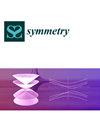循环水培养系统溶解氧的自适应抗干扰控制
IF 2.2
3区 综合性期刊
Q2 MULTIDISCIPLINARY SCIENCES
引用次数: 0
摘要
在三维培养模型中,养殖区域的养殖篮是对称的,控制对称区域的溶解氧是提高培养效率的重要因素。实际工程问题,如流量、pH、水温和生物耗氧量对循环水培养系统中溶解氧含量的影响,必须考虑控制模型中存在的建模误差。提出了一种溶解氧非线性扰动观测与自适应滑模控制相结合的自适应扰动控制策略。首先,建立了循环水养殖系统中溶解氧控制的动态模型。该模型考虑了外部干扰,如人工氧合、系统流量的突变和培养耗氧量的变化。其次,为了提高溶解氧浓度控制的鲁棒性和精度,引入了一种非线性自适应扰动观测器,用于实时估计和观测外部扰动和系统不确定性。这伴随着一个基于滑模控制的自适应抗干扰策略。最后,仿真结果表明,本文提出的控制策略对系统不确定性和未知外部干扰具有较强的抵抗能力。此外,该方法降低了对控制器模型精度的要求,适用于循环水系统溶解氧的精确控制。本文章由计算机程序翻译,如有差异,请以英文原文为准。
Adaptive Anti-Disturbance Control of Dissolved Oxygen in Circulating Water Culture Systems
In the three-dimensional culture model, the breeding basket of the culture area is symmetrical and it is important to control the dissolved oxygen in the symmetrical region to improve the culture efficiency. Practical engineering issues, such as the influence of flow rate, pH, water temperature, and biological oxygen consumption on the dissolved oxygen content in the circulating water culture system, must be considered along with the presence of modeling errors in the control model. The authors propose an adaptive anti-disturbance control strategy for dissolved oxygen that combines nonlinear disturbance observation with an adaptive sliding model control. Initially, a dynamic model for controlling dissolved oxygen in a recirculating water aquaculture system was developed. The model considers external disturbances like artificial oxygenation, abrupt changes in system flow, and variations in culture oxygen consumption. Secondly, to enhance the robustness and accuracy of controlling dissolved oxygen concentration, the paper introduces a nonlinear adaptive disturbance observer for real-time estimation and observation of external disturbances and system uncertainties. This is accompanied by a sliding-mode control-based adaptive anti-disturbance strategy. Lastly, the simulation results demonstrate that the control strategy proposed in this paper shows resistance to system uncertainties and unknown external disturbances. Furthermore, it reduces the model accuracy requirements for the controller and proves to be suitable for accurately controlling dissolved oxygen in circulating water systems.
求助全文
通过发布文献求助,成功后即可免费获取论文全文。
去求助
来源期刊

Symmetry-Basel
MULTIDISCIPLINARY SCIENCES-
CiteScore
5.40
自引率
11.10%
发文量
2276
审稿时长
14.88 days
期刊介绍:
Symmetry (ISSN 2073-8994), an international and interdisciplinary scientific journal, publishes reviews, regular research papers and short notes. Our aim is to encourage scientists to publish their experimental and theoretical research in as much detail as possible. There is no restriction on the length of the papers. Full experimental and/or methodical details must be provided, so that results can be reproduced.
 求助内容:
求助内容: 应助结果提醒方式:
应助结果提醒方式:


